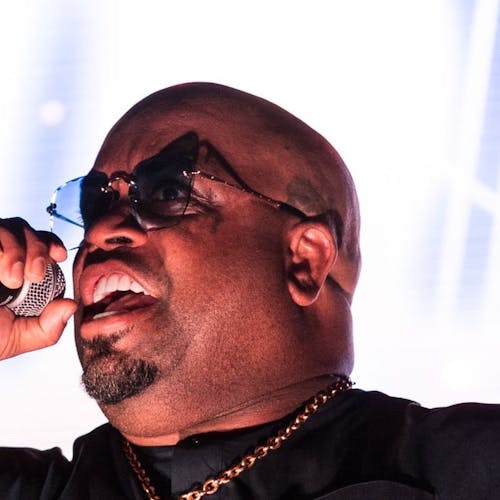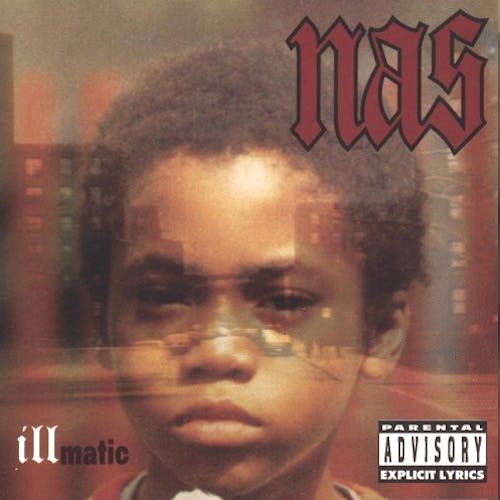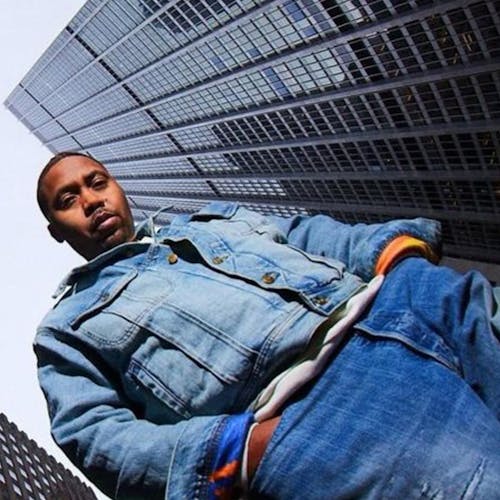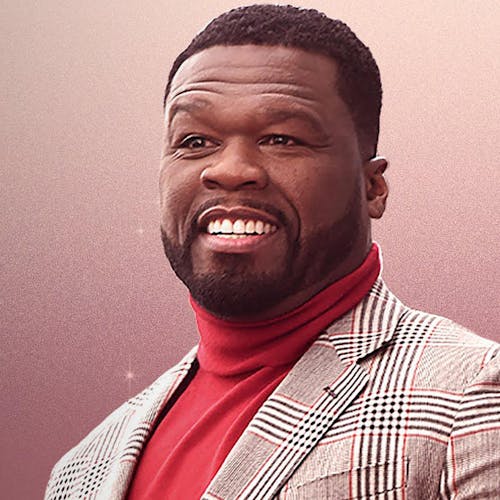
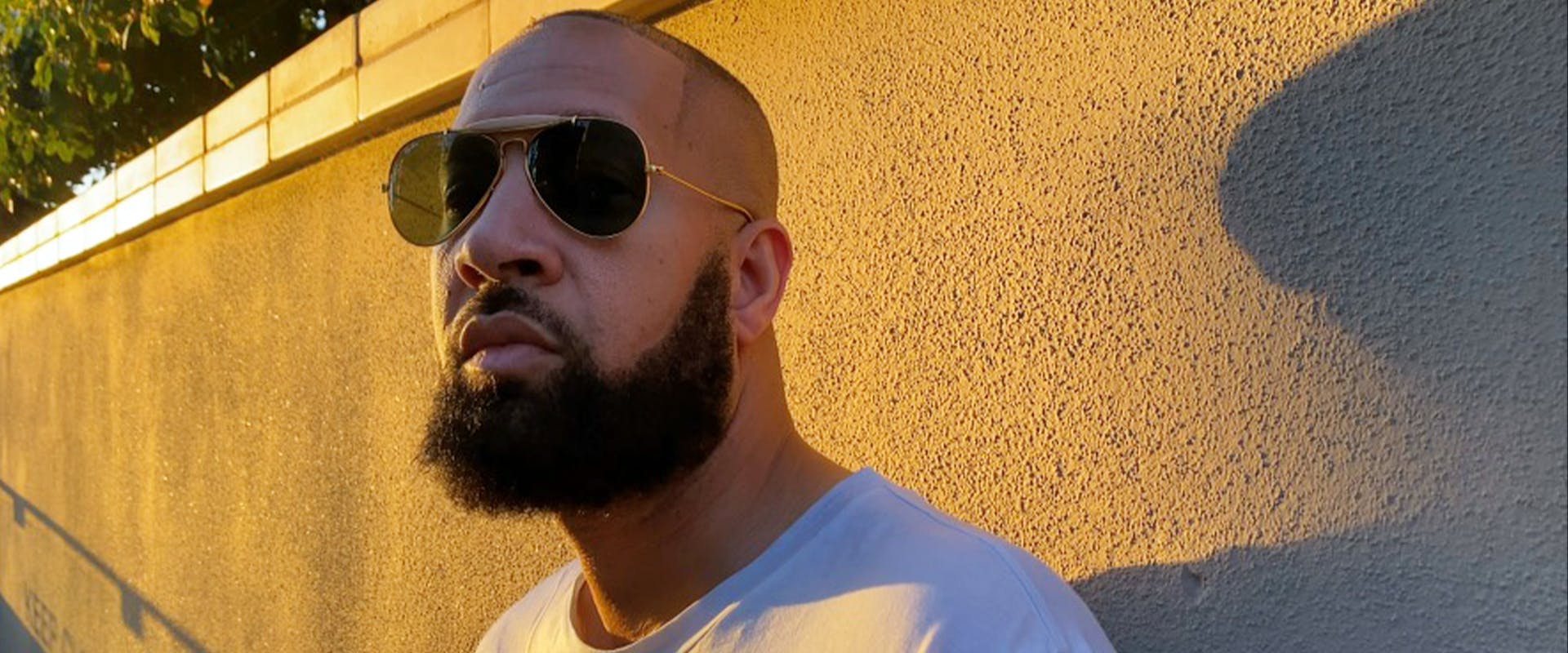
The Legend of MC JUICE
The Legend of MC JUICE
Published Mon, August 2, 2021 at 1:36 PM EDT

I definitely represent that life, that Hip-Hop life. But I also want people to see that you can evolve and start doing shit that's just as meaningful, and still pursue your dream that way. I'm just trying to make sure that at some point people know it wasn't a lost cause.
Missed potential is a common occurrence and familiar theme in many mediums. Hip-Hop is no exception. For every artist that made it against all odds, there are just as many tales of those who looked destined for stardom but for one reason or another, their light didn't shine as bright as predicted. Reasons are plentiful and include internal and external factors: lack of resources, lack of work ethic, the state of the music business, available technology, the social and political climate, systemic racism, and simply being a jerk.
Since the late '90s, many in the Chicago Hip-Hop community, and the underground community at large, have wondered, "Why didn't JUICE blow up?!" It's a question I've thought about and discussed with my peers at countless studio sessions, parties, and shows. The answer is as complex as JUICE's backstory, and just as deep as his skillset.
One industry rumor is that he was given the dreaded label of being “hard to work with," and then abandoned for more controllable artists.
“I do think there may have been people in a position to reach for him that chose not to based on either a past experience with him or rumors about him being difficult to work with,” says JUICE’s producer and DJ, Emmaculate. “JUICE is a very head strong person and a leader by nature, and he always wanted to have his own record label. That sometimes doesn't mix with other people's objectives...very often, if someone doesn't see how they can use you in their system and may see you as a threat, they won't empower you.”
There is a school of thought that JUICE was too good for any other artists to want to work with him or bring him up out of fear of being outshined. JUICE says that Kanye West once told him bluntly at the House of Blues, “As long as you’re rapping and I'm rapping, I would never help you cause you're just too good.” JUICE got a similar refrain from DMC, who told him, “You have the type of talent that people aren't gonna help make it...I could get you all the meetings in the world. JAY-Z has to take my call cause I'm Daryl Mac. But at the end of the day, they're not gonna help anybody like you.”
There's the similarly familiar theme of battle rappers not being able to crossover, as Sway Calloway points out. “To be an artist that battles doesn’t mean you'll be a viable, sellable artist for a record company. At that time it was really about hooks, songs with hooks. You're talking like late '90s, your song had to have a hook.”
And there was also this event called "Napster" that completely decimated the industry during JUICE's peak by turning potential sales into free downloads.
“We still had the '90s mentality of, 'Hey man, if you're dope, you're gonna blow up,'” says King Tech of the legendary Wake Up Show. “In the early 2000's as we were getting older, all the high school and college kids were starting to file share. The indie labels were working back in the '90s, but the indie labels had even less power to control the amount of file-sharing that was taking place. And they had less money to promote. So you were hoping that the song themselves were going to blow up, and it just became this mess of, 'Do they know what they're doing?'”
"I think that the thing is that JUICE has historically been misunderstood," says Rhymefest, one of JUICE's contemporaries and most bitter rivals in the Chicago battle scene. "We talk about these things like who blew up, and who did this or whatever."
"I think the point of the whole shit is, JUICE didn't fail, JUICE was Mr. Miyagi," Rhymefest further reflects. "He was Mr. Miyagi for me, for Supernatural, for Eminem. Mr. Miyagi don't really get the karate trophy. Mr. Miyagi just teaches Daniel Son how to do it."
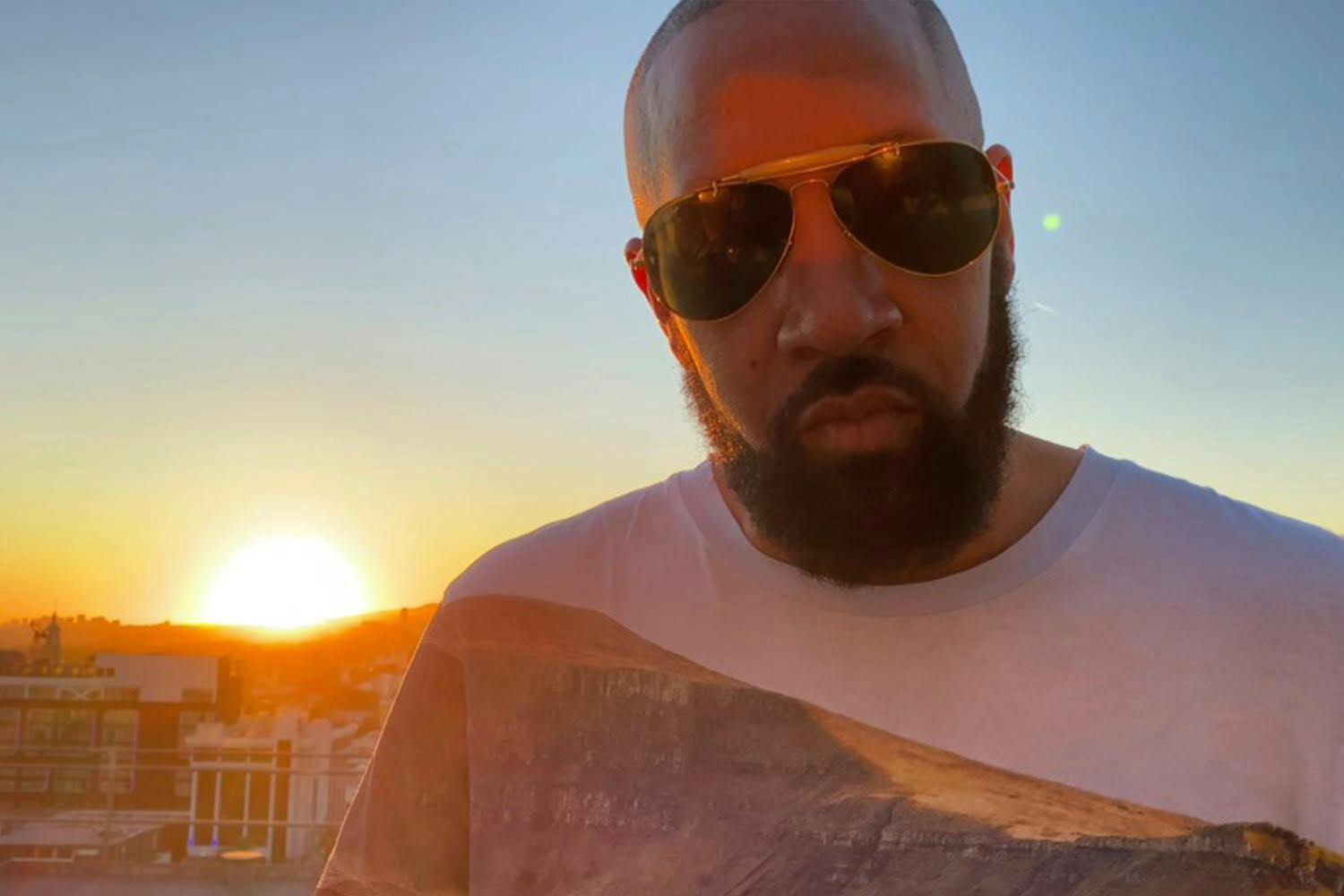
Terry Parker aka MC JUICE aka J.U.ICE isnot a household name. He is known primarily amongst the most heady of Hip-Hop heads. For some, the name "JUICE" starts and stops with his victory over Eminem at Scribble Jam '97. Eminem has spoken about JUICE quite a bit, and most recently recounted this experience on Mike Tyson's podcast. "I got all the way to the end, and then I lost to this guy named JUICE," Eminem told Tyson about his Scribble Jam loss. "To this day [JUICE] is still a really good fucking rapper. He's so good that it's OK that I lost to him."
DROP YOUR EMAIL
TO STAY IN THE KNOW
For others, JUICE's name serves as a litmus test to prove one's level of Hip- Hop knowledge, or connect on a personal level. "You know JUICE, so I know you and I are cut from the same cloth," Sway told me shortly before I interviewed him for this article.
Those that really know JUICE, the people who can quote the freestyles, or spit his verses from classics like "Freestyle or Written," "Ill Hip Hop," and "How We Chill Pt. 2" revere him. To know JUICE is to recognize the famed battle rapper and "dopest freestyle n***a on the planet" as one of the most highly skilled emcees to ever do it. Chicago Hip Hop of the late '90s and early 2000's may have been represented nationwide by the likes of Common, Kanye West, and Twista on a mainstream level, but the Chicago underground belonged to JUICE.
"If Common and Twista were in the NBA, then JUICE was kind of like Chicago’s Street-ball legend. And-1 mixtape type shit," says Jabari "Naledge" Evans, a scholar and emcee who rose up thru the ranks of the Chicago scene as a solo emcee and part of Kidz In The Hall with producer/DJ, Double O. "Juice was a linchpin of our local scene in Chicago and did it at a time where you actually had to leave the house to gain a reputation. He carried himself like a star and he was probably the most accessible rap star Chicago had."
"He was King of the Underground."
JUICE made his mark in Chicago, but he discovered and developed his talents in Los Angeles, where he spent the majority of his childhood. He was born in Chicago's Hyde Park neighborhood to a mother with musical aspirations of her own. JUICE moved to Los Angeles around 4 years old when his mother started to heavily pursue the theater. "That's when she sort of introduced me to people and crowds, and that sort of thing," JUICE says about his mom, who was good enough as a teenager to garner her own record label offer from Motown Records at 17. She ultimately had to turn it down due to lack of parental support. "When I was around 6, she brought me on stage," JUICE recounts. "I did some impressions, some comedy and shit. They gave me a standing ovation and ever since then I was like, I like this." The crowd, the applause, the idea that he could control people's emotions and channel their praise intrigued him.
JUICE and his mom bounced around LA for much of JUICE's childhood, and also had a stint in San Diego. Repeatedly being the new kid can make it tough to make friends, and JUICE had to work hard to get people to like him. The feeling of a cheering crowd became a sought after commodity for the self-described nerdy kid. "I always wanted to be liked, cause I was never liked," he admits. "I had to make people like me. I always wanted the approval of the crowd in a different way than most people. It triggered something in my brain," he continues, explaining the way in which crowd applause only served to further his skill development. "There was a weird thing where every time I'd get that little bit of endorphin, I'd get a little bit more precise, a little bit more concise, a little bit more succinct, a little bit more cohesive and I start to give them what they want, so they can give me what I need."
He got slapped in the face by Hip-Hop after hearing Big Daddy Kane's "Raw" on the LA radio station, KDAY. "I was like, what the hell is this?! He was rapping in a way they didn't rap on the West Coast. It was braggadocious. That caught me," he says. This was pre-internet, pre-Napster, pre-Spotify. Being naïve to the music world, JUICE headed to the only place he could think of to track down Big Daddy Kane: the record store. "I went to Warehouse, and Tower, and Sam Goody, all these places looking for this Big Daddy Kane guy. Right in that same section was everyone else. That's how I learned about LL, who is actually my favorite emcee of all-time."
From there, it was on. Writing raps became an obsession for JUICE, but he wasn't JUICE yet. "At first I used to be Fresh T and then I wanted to do something more original than that, so I changed the shit to T Fresh...So Stupid," JUICE remarks with a self-effacing laugh. He changed his name to JUICE around 12 or 13 years old. "I was on my way to get some Taco Bell and I met two kids from New York, Marcus and Reggie. I might have been 12 or 13 and they might have been 7 or 8," JUICE says about this chance encounter. "They were rapping and shit, so I listened to them rap and then I rapped. They were like, 'Yo, you're real dope. What's your name?' I was like, 'it's T Fresh.' They said, 'that's a horrible name... the way you rap, you should change your name to JUICE, cause where we're from in New York, JUICE means respect.' I basically got schooled by some shorties."
JUICE took his rap-writing obsession with him to school, foregoing recess and free time to sit at his desk and scribe. His teacher asked him what he spent all his free time doing, and he showed her some of his work. The quality led her to invite JUICE to recite his raps in front of the class. "I shared it with the class and I got that same applause I got at 6 when my mother put me on stage. 'What?! They really like it.' So that was like the catalyst. Then I went home and started writing raps. Cause I thought, 'whoa, they really like these raps.'"
During the summer after his school debut, he practiced and practiced and practiced, searching for more ways to garner that support and obtain the endorphins related to the applause.
His mother helped him in this pursuit, pointing to objects and making him rap about them - it was a freestyle boot camp.
"She was like 'if you want to be good at what you do, you gotta be able to do it on the spot.' That really taught me how to freestyle," JUICE says.
By the time he got older and discovered freestyle competitions as a way to earn a name and some dollars, he was beyond ready.
Around 7th or 8th grade, JUICE and his mom settled in the San Fernando Valley. He attended Bancroft Junior High, where ciphers formed daily. "They used to always not let me rap," JUICE says about the older kids in the cipher. But there was one older kid who embraced JUICE with open arms, and served as his ambassador. This ally was another tall and lanky Chicago to LA kid named Chali 2na. 2na would rise to fame himself through his groups Unity Committee and Jurassic 5. "Chali 2na was the person that put it out to everyone that there's this young dude who's really dope," JUICE says. "And he made people respect me. Before then I was constantly fighting, constantly suspended. I was a smaller kid, but I wasn't just gonna let you punk me. I had hands. He changed that narrative to make it that when they saw JUICE, they were like, 'oh my god, that's Chali 2na's boy?!'"
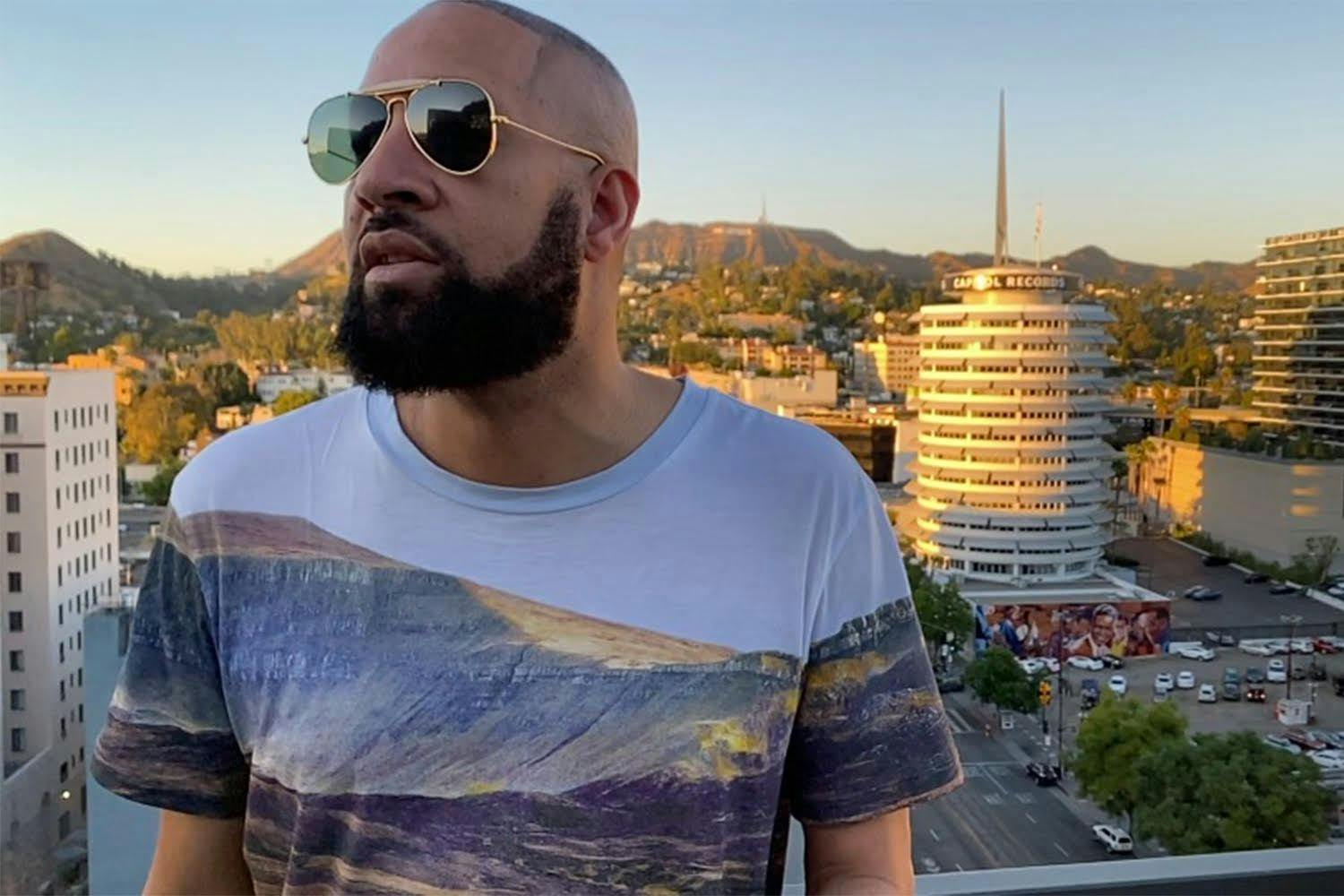
From the Bancroft Junior High ciphers, JUICE started entering freestyle competitions on the radio, calling in regularly to take on other competitors and win cash prizes. He got so good that he had to start using another name, when the station found out what he was doing, he had to resort to feeding rhymes to friends and splitting the cash. His name started to bubble as someone not to be tested. He formed a crew called CSS (Constantly Serving Suckers) and became friends with members of the Alkaholiks and Likwit Crew. This was in the late '80s and early '90s as the LA underground was forming, an underground that was home to Freestyle Fellowship, Project Blowed, and other artists that came up in the legendary Good Life Café scene. But JUICE missed all of that when he and his mother moved back to Chicago in 1991. "I wanted to stay," he tells me. "But I'm so glad that I came back because the culture in Chicago is easily as rich as LA or New York, and I wouldn't have been a part of it...moving back I grounded myself and I found my base where I was from, and I found my purpose in the music."
Chicago's Hip-Hop scene at this time was raw, vibrant, and could be treacherous for the timid or unskilled. Emcees, DJ's, breakers, and graff artists regularly gathered at spots like the Elbo Room, Lower Links, The Blue Note, and Literary Explosion. JUICE earned his stripes taking on any local challengers, as well as the out of town touring artists that stopped through. "You might see Raekwon one night. You might see RZA one night. You might see Digable Planets one night. You never knew what you were gonna see walking in the club," says JUICE. "Whoever was there, I was there to just put it down and let everybody know, you couldn't fuck with us in Chicago,” he tells me while recounting an interesting encounter with Fat Joe.

When I had the microphone in my hand I felt like I was one of the X-Men with that shit.
JUICE met Rhymefest through the battle scene. According to Rhymefest, they met at Jesse Jackson's Operation Push, where JUICE beat Fest in a battle competition being hosted there. The rivalry kicked off with JUICE testing Fest every chance he got. “JUICE had become my best teacher through being the fiercest competition I had ever faced up to that point. He mentored me through battle,” Rhymefest recalls. “And every time he saw me, he attacked me lyrically. He attacked me anytime he saw me anywhere. And I loved it. I loved it.”
Rhymefest was venturing into making records and fell in with the Molemen crew, led by the producer and label owner, Panik. Rhymefest soon invited JUICE into the fold & they made “How We Chill Pt 2."
"I saw how good he was and just figured if he made some songs, people would appreciate what he was doing," says Panik, who featured JUICE on Molemen compilations such as Buried Alive, and Below The Ground. He also produced and released JUICE's full length, Tip of The Iceberg. Panik was also behind JUICE’s audio calling card, “Freestyle or Written.” Along the way, he opened JUICE's eyes up to the larger Hip-Hop culture that made its way into the music. "I just naturally introduced him to my side, and my version of the culture."
The late '90s and early 2000's is commonly referred to as the “Backpack” era of Hip-Hop, a time when boom bap Hip-Hop was flourishing on an independent level and "conscious" emcees were garnering acclaim, notoriety, and profitable opportunities. It is a time period that is best represented by labels like Rawkus Records, who became the home to NYC trendsetters such as Talib Kweli, Yasiin Bey (formerly Mos Def), Pharoahe Monch, and Company Flow. These artists promoted a vision of Hip Hop that was much more than just rapping, and much more than just music. They served as protectors and celebrators of Hip-Hop culture, guarding it against extreme commercialism and materialism. The elements of Hip-Hop took prime position in the subject matter of this era’s most prolific records. Emcees were expected to battle, DJ's were expected to be sharp, breakers agile, and graf writers original. Labels like Molemen Records, All Natural, and Galapagos 4 served that purpose for Chicago. JUICE came to represent a corner of this indie Hip-Hop and battle scene. He rose to prominence after defeating Eminem at Scribble Jam ‘97, which followed victories in key competitions such the Rap Sheet Battle and Gavitt Convention. He was also involved in a storied rivalry with MC Supernatural (one of his few defeats). JUICE became a favorite of The Wake Up Show, a radio show that served as a counterpart to Stretch and Bobbito for the West Coast and became a formidable proving ground hosted by Sway and King Tech. He delivered a jaw dropping appearance during his first visit, one that is still talked about today. “We kept hearing about JUICE and we finally got him up,” says Sway. "He just didn't look like I thought he would. I really didn't know what I thought he would look like. I didn't know what to expect from him. There wasn't a lot of video out. There wasn't any Youtube and shit. You just heard word of mouth, and we were really hardcore Hip-Hop enthusiasts, purest when it came to freestyles, written or off the top of the head. It took a lot to really convince us.”
But Sway and Tech were convinced that day. "Once he started rapping, it fucking blew our minds,” Sway told me via phone. J"UICE was not just good, not just great, but purely unbelievable, and several people tried to prove that he was not actually freestyling."
“To me, that was an even bigger endorphin. It meant that I was so good, they couldn't believe it! It meant my degree of difficulty was bigger than everyone else’s,” JUICE says about the doubters.
The scene was thriving and JUICE was happy to be the champ. “I was so gung-ho to do that shit just to get my name out. I was just repping. Everybody else was making records and trying to get deals. I was just repping the motherfucking art and I was happy with that. I never wanted to be famous, I never wanted to be known. I just wanted to be the best.”
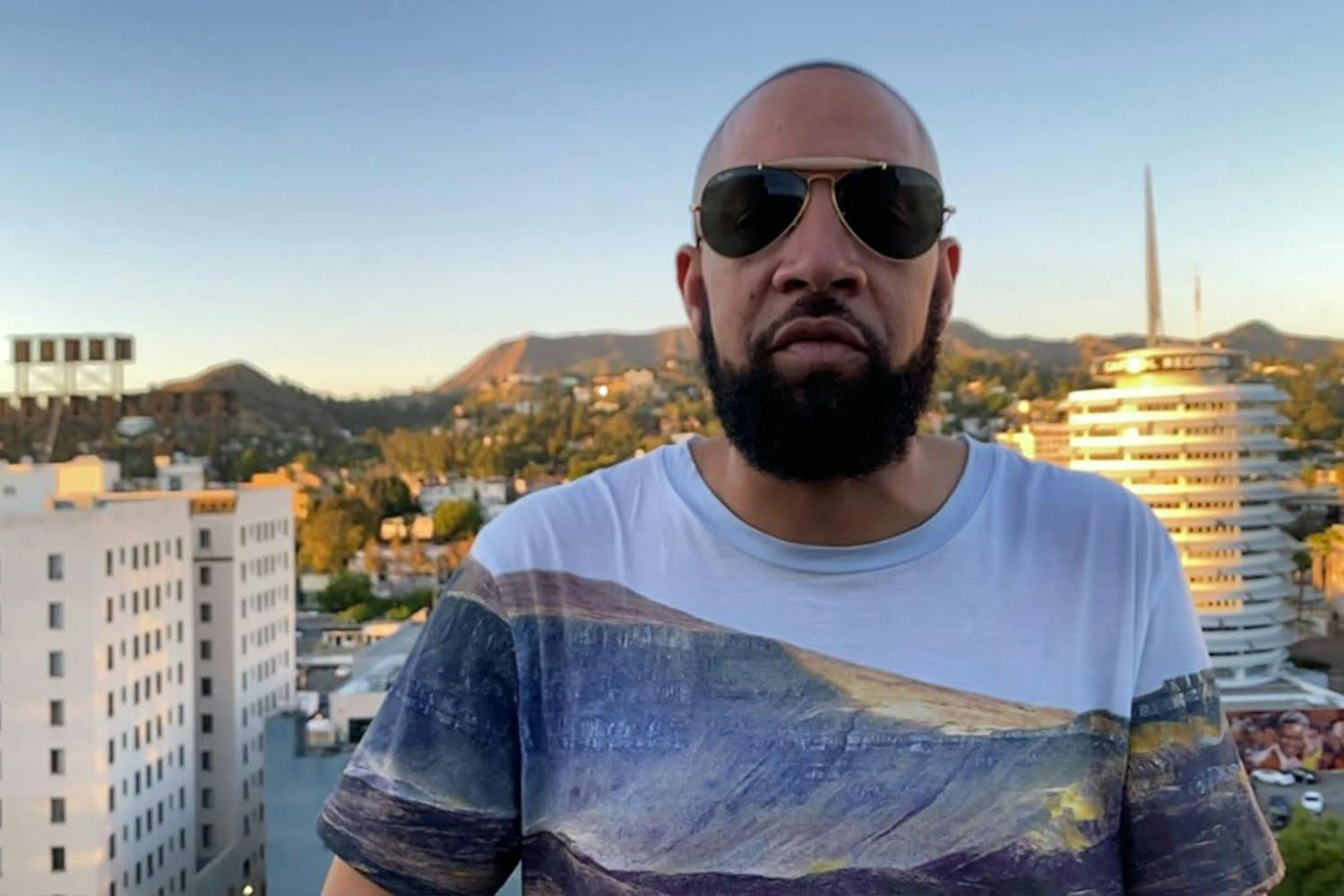
At some point though this scene started to change and the artists started to see the "underground" or "conscious" tag as a hindrance. The kids that were 19, 20, 21 just spitting to gain a rep started to realize that it wasn't just a freestyle because there were no rules. The harsh reality was that there was no real money to be made, and the styling was free of charge - off in the ether. The indie labels once flourishing were also hit hard by Napster. So while more and more kids were downloadingWake Up ShowFreestyles in their dorm rooms, they were also getting the studio recordings for free. For many freestyle artists, their recorded music was proficient, but it didn’t capture the same energy as their live exhibits.
"It's such a gift to be able to freestyle," says King Tech, Sway's host on the Wake Up Show. "Once you become known as that guy that puts on that show and that face, it's really hard to make records because people want to see you more than they want to hear you, in a weird way."
JUICE's laser focus on being the best may have come back to bite him as far as having a music career beyond freestyles and battle competitions. "My whole point was to just show everybody I was the best. If 1,000 people knew that, I was actually happy with that. If 10,000 people knew it, I was happy," he says. "I'm actually a bumbling idiot and I actually did it backwards. I didn't start wanting [commercial success] until way later." By that time, JUICE was pretty established in his ways. While major labels started to come around, he didn't feel comfortable giving up control of his content or sound, which further hurt his cause of breaking through the underground.
"I was offered some situations with Bad Boy and Roc-A-Fella. My boy Xtreme had a situation with Universal," JUICE says. "I just couldn't be the me that I wanted to be. And do the kind of music I wanted to do, so I didn't take those situations either, so that's when I really became the poster boy for the underground. I became labelled as difficult to work with, but it really wasn't that. It's not like I took a $100M budget and screwed it off. Nobody ever gave me anything. Nobody can ever say, ‘I worked with him on an album and it didn't do this etc,’ but that was the label."
By 2004-2005, JUICE saw more and more of his peers achieve record deals, tour opportunities, and some even achieved super stardom. "I hadn't been on a tour," JUICE says of that time. Supernat and them, they were making $4K, $5K and $10K a night opening for Dilated [Peoples]. I didn't have shit. I didn't have any of that. I wasn't making any money at Hip Hop."
That's not to say JUICE was broke. Outside of Hip-Hop, he was a professional gambler earning large sums of money, and partying regularly. His daily lifestyle seemed to conflict with the "Life of a Hip Hop Nomad" that he lived in the underground, and he felt his music suffered because of it. The answer was All Bets Off, an LP that was produced by Elgin's Emmaculate, and served to be more representative of his personal life and carried a more commercial sound. "I was making music to make girls pull their panties up," JUICE says with a laugh. "I was like, 'wait a minute. I have a little more to me.'"
Emmac came up in Elgin's Rec Center crew, and met JUICE around '97 or '98 at one of those Elbo Room parties after hearing about him throughout the underground. "JUICE's name rang bells in Chicago in the '90s. He was the top dog in the underground," Emmac says. He also remembers many conversations about how to showcase more of JUICE's songwriting ability as well as personality with the All Bets Off LP. "JUICE admittedly didn't realize he had been branded as a very specific type of artist from his success in the underground, indie Hip Hop world, and battle circuit. He is a much more diverse and dynamic person than that."
JUICE shares that sentiment, saying, "So many sides of me were missing in that underground world," JUICE reflects. "It wasn't dimensional enough for me. So, I did that [album], and then I stopped doing battles and shit cause I realized there's no publishing, there's no touring rights, there's no royalties, there's no merchandise. It's just for other people's enjoyment. I stopped that shit, that's why you saw that shift in All Bets Off."
The album also introduced Conglomerate Music, JUICE's own label, which he hoped to grow and then bring into the major label system. It didn't work out that way. "A cardinal mistake that I made, I was signing other artists to Conglomerate before I had fully blown myself up," JUICE admits. "I did everything backwards. I should've blown me up through Conglomerate and then the other artists would have had a solid platform. But again, you can't blow yourself up if you're not willing to take any of these deals."
The last go-round was with Interscope, who sent him production from Polow Da Don, Scott Storch, and even his one-time freestyle opponent, Eminem. The demo JUICE recorded carries classic early ‘00’s Eminem production, and JUICE used it to make a song about making a song for a record deal. Ultimately though, he turned that down as well. “We ended up very close to getting JUICE a deal with Interscope at a time when they had the biggest artists in Hip-Hop and were on top,” says Emmac. “We fell short for a variety of reasons... mainly, they were making him jump through too many hoops, so we bailed on them.”
Listening back to All Bets Off, it is a strong offering from an incredibly skilled wordsmith and feels like it would fit right in with records from Griselda, Freddie Gibbs, Royce da 5’9” and other similar emcees that are seeing success right now. But the backlash was strong when it was released. It did not carry the same energy or aesthetic of his fan favorites such as 100% JUICE or Listen To The Words. Many of JUICE’s hardcore fans were unwelcoming of his growth. "A lot of his core fans from the past dissed the shit out of that album," Emmaculate recalls. "And we didn't expect them to like it. At that time particularly, the backpacker scene and the street/commercial scenes were very segregated in Chicago. We existed in both of them."
Straddling a fence can often leave you without a home. From Naledge's perspective, JUICE was caught in the middle during a time when Hip-Hop was polarized. "I think Juice’s problem was that he never figured out if he was going to leverage the novelty of freestyling and battling into something greater like say Supernatural or Loaded Lux, or take the time to put together a real album and be an artist like say Eminem, Kweli or even someone like Skillz,” he says. “I don’t think he ever truly picked a lane and the game shifted away from the style of rap he was known for," Naledge continues. "I’m sure there were opportunities he wishes he took advantage of at one point, but most artists do in retrospect. Being a street legend doesn’t really pay the bills like a hit record does. Even still, I think he has a great career left in him if he reinvents himself...If he was a product of today’s era, his ability to freestyle and battle would probably make him go viral on social media."
JUICE first reinvented himself around 2007 as the front man for a short-lived live band, JUICE and The Machine. They released a live concert DVD and then broke up. I met JUICE around this time, and worked with the same management company. I also brought him into my 2nd grade classroom to lead a workshop with my students. About midway through his visit, a coach at the school burst into my classroom, “I heard JUICE was here and I had to meet him!”
JUICE continued to record and release music as the game shifted towards the blog era. He even briefly joined forces with Rhymefest, setting aside their differences to link with other Chicago lyrical assassins Mikkey Halsted, and Twone Gabz to form a supergroup of sorts. Yet life setbacks soon got in the way. There was a terrible car accident that sidelined him physically, and caused some temporary brain damage that left him unable to freestyle. "I broke my neck in a car accident. I lost my memory and I couldn't freestyle. It took me a couple years to get it back," JUICE says.
Following the car accident, JUICE decided to relocate back to LA, using money left to him by his recently deceased father. He and his wife, Belle Wise, got pulled over in Nebraska. They were travelling with a large amount of cash with the intent of starting a new bank account in LA. "They charged us with illegal possession of money, which carries 5-years. That's a felony. They charged us with covering up the money. Got in front of a judge, the judge sentenced us to a year each for the same money. We ended up doing 8 months in Nebraska."
The experience fully shook him. He couldn't believe what was happening, and that he could not protect his wife from going to jail with him. Sitting in the intake, something she said changed his mindset. "When we were in that fucking jail intake in orange jumpsuits about to go in, I couldn't believe that I couldn't protect Belle, I couldn't believe that there was nothing I could do. But she said, 'Don't worry. This is just a time to rest, reflect, and reset. Let's rest, reflect, and reset and everything will be fine after this.”
JUICE did just that, and following their release in 2016, he and Belle set out yet again for LA. It proved to be the move that was needed. Since being in LA, he's found a new identity and career writing for artists such as Big Sean, Saweetie, Kash Doll, Kanye West, and others. He’s also come to terms with the ways in which his past behavior may have cost him relationships and opportunities, “I was a bogus type of friend back then,” he admits. “I didn't have a moral compass, I was straight out of LA, straight out of that street life in LA and I just didn't understand the long-term effects of a friend. If you had a $20 at your house or a CD of the Roots, I might've took it just cause. To me that stopped a lot of dope ass relationships I probably could've had.”
Eminem is correct though, JUICE is still really fucking good. And he's still at the top of his game as demonstrated when he made a triumphant return to the Wake Up Show in 2019 for their 25th Anniversary Reunion Show. "To this day I think he's one of the best dudes out," says King Tech.
From JUICE’s perspective, he’s ready for a proper introduction to a new audience, and a reunion of sorts with his existing fanbase. Beyond his ghostwriting, JUICE is planning to reissue some of his classic material, and has a new project with Cap D of All Natural that is produced by Georgia Anne Muldrow. "Only now am I really primed from all the stuff over the years, and ready to reach all the people who want it," he says, moving on from any bitterness or resentment he once had towards an industry that continually counted him out or moved the goalposts."I'm OK with that," he says. “I always wanted to be the best. I honestly feel in the history of the earth, I'm the absolute best at that shit," he says. "In terms of being improvisational in-the-moment, I don't think there's ever been a human being better than me. I don't think anybody could prove it differently. That's what I set out for, and I did it already. I'm platinum, to me."
